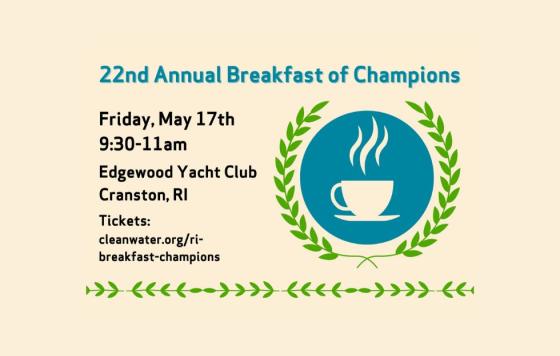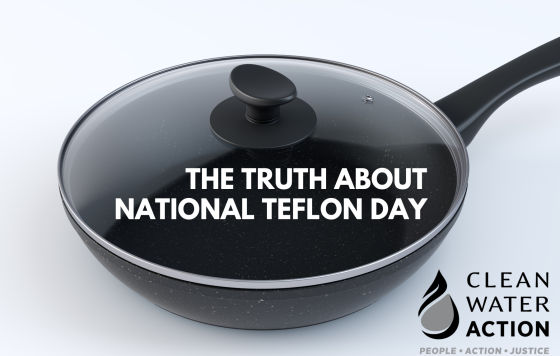
I am often asked: “Why are you studying environmental policy?”
This is a loaded question because there are so many different ways to answer it. The other day, however, I had a revelation.
I attended a Facebook live event on PFAS (a human-made chemical class that is resistant to grease, water, oil, and heat) contamination in consumer goods. One of the speakers described how her family has lived approximately 100 meters from an incinerator for generations. Her mother recently died from a brain cancer that was thought to have a causal relationship with chronic PFAS exposure.
Hearing her story evoked many emotions. I was sitting in front of my computer crying over this woman and her family’s experience, wondering how anyone could let this happen. I then realized that stories like this when paired with credible evidence and data, and shared with elected officials and other decision makers, could lead to important changes. It came to me -- this is why I study environmental policy.
As I begin my second (and final) year of graduate school, Bard College's Center for Environmental Policy requires students to obtain a full time internship of their choice. Considering the November presidential election and the political environment of Washington, D.C. during this time, my primary interest was to intern there. However, COVID-19 inevitably changed my plans and I’m now doing my internship remotely.
I networked and found an opportunity with Bard CEP alumni Jennifer Peters, class of 2007, who is the National Water Programs Director at Clean Water Action.
Clean Water Action is a national organization that works to uphold and pass strong health and environmental regulations at both the state and federal level, educate the public and policy makers, and elect environment leaders to office. In addition to its headquarters in Washington, D.C., Clean Water Action has offices across the country.
Clean Water Action engages with communities, Congress, municipalities, and other environmental groups to take action on critical environmental issues.
Some of the primary issue areas include:
-
upholding clean water and drinking water regulations
-
protecting communities’ from the harmful effects of oil and gas production
-
engaging with and mobilizing voters
-
raising awareness on climate change and the anticipated impacts
-
holding chemical companies accountable for the production and distribution of harmful substances (like PFAS)
-
reducing single-use plastic waste.
Most, if not all of these issues hinge on the outcome of the 2020 presidential election. The Trump administration has rolled back dozens of environmental regulations. These rollbacks impact the quality of our air, water, soil, and overall ecosystem resilience.
The Translation of Complex Information
My internship opportunity at Clean Water Action has enabled me to build and hone skills I learned at Bard, including translating complex information into digestible fact sheets on several key topics. A significant portion of my research at Clean Water Action has been spent studying per- and polyfluoroalkyl substances, or PFAS. Through ongoing research and networking with experts in the field, I have been able to develop my capstone topic in fulfillment of my MS at Bard College.
During my first month at Clean Water Action, I researched the Clean Water for All Act, which would overturn the Trump administration’s Navigable Waters Protection Rule (also known as the “Dirty Water Rule”). Through extensive research, I drafted a fact sheet for members of Congress, explaining why they should support the Clean Water for All Act. At Bard, we studied the relevance of defining waters of the United States (WOTUS) under the Clean Water Act and how it relates to regulation and implementation in law.
In addition to defending clean water protections, Clean Water Action recently endorsed Joe Biden for president and published the Clean Water Scorecard. The purpose of this scorecard is to ensure Clean Water Action members know how their U.S. Representatives and Senators voted on crucial water and environmental legislation.
Providing the public with this scorecard is just one of the many ways that Clean Water Action engages its members and mobilizes voters. Organizing grassroots canvassers, publishing fact sheets, reports, and policy briefs, and urging members of Congress to cosponsor pro-environmental bills are just some of the ways that Clean Water Action engages politically.
Working alongside experts in the field, this organization is providing me with ample opportunities to become involved in environmental advocacy during a heated time, under the most anti-environment standing President in history.
The fate of our planet for the next few decades is dependent on the outcome of this upcoming election, and I am honored to be a water advocate at Clean Water Action.



